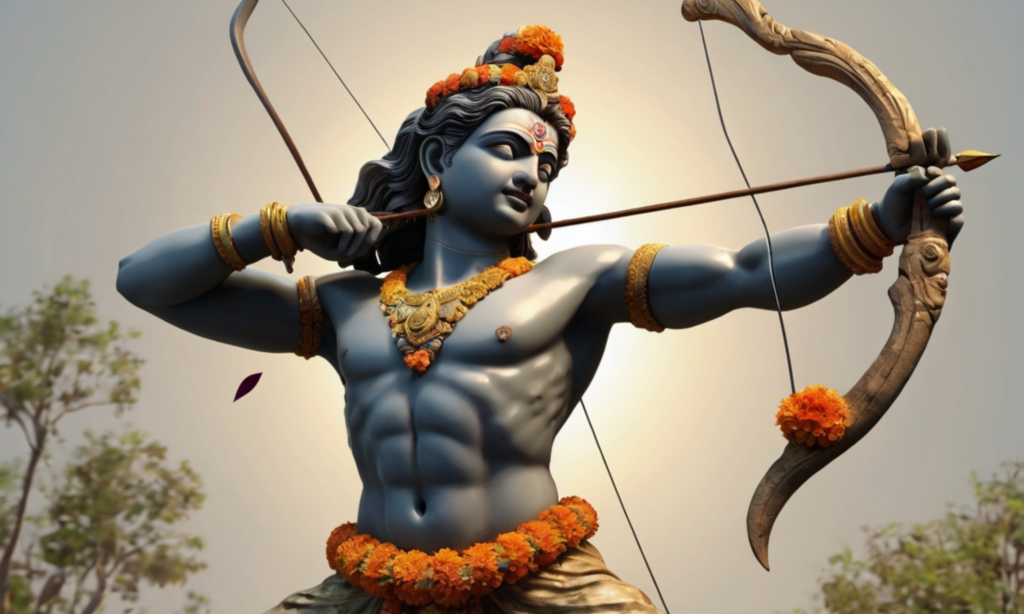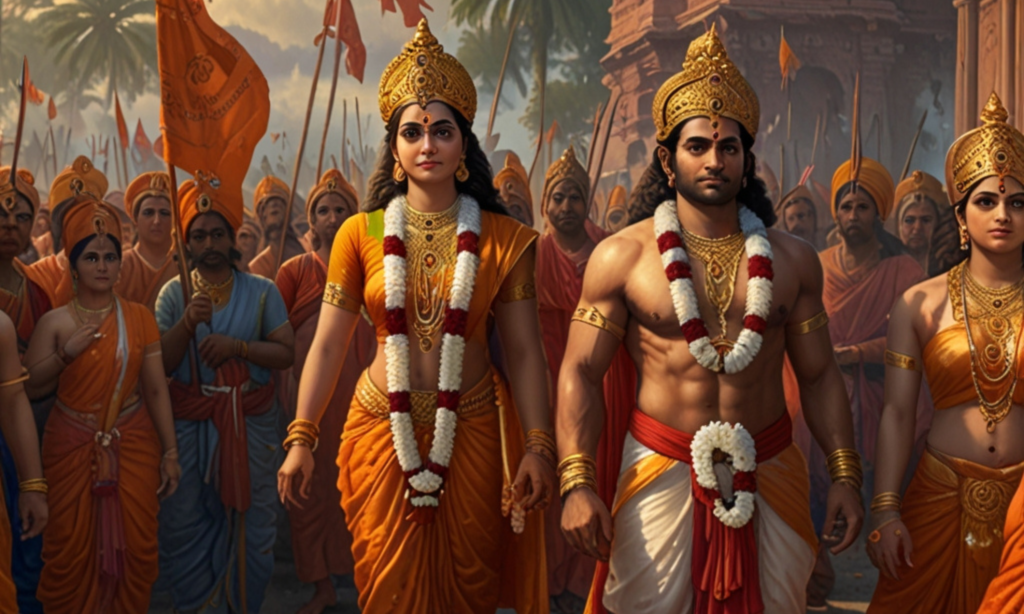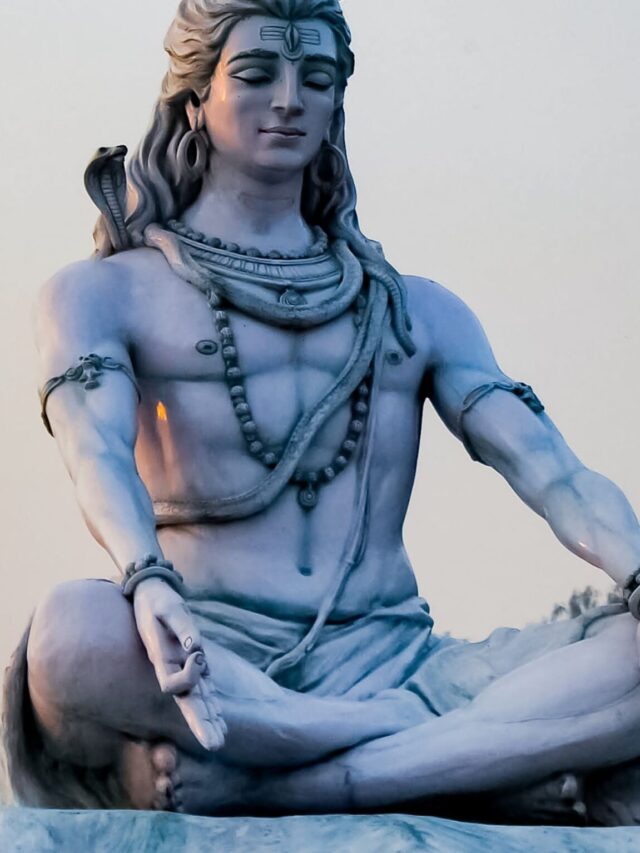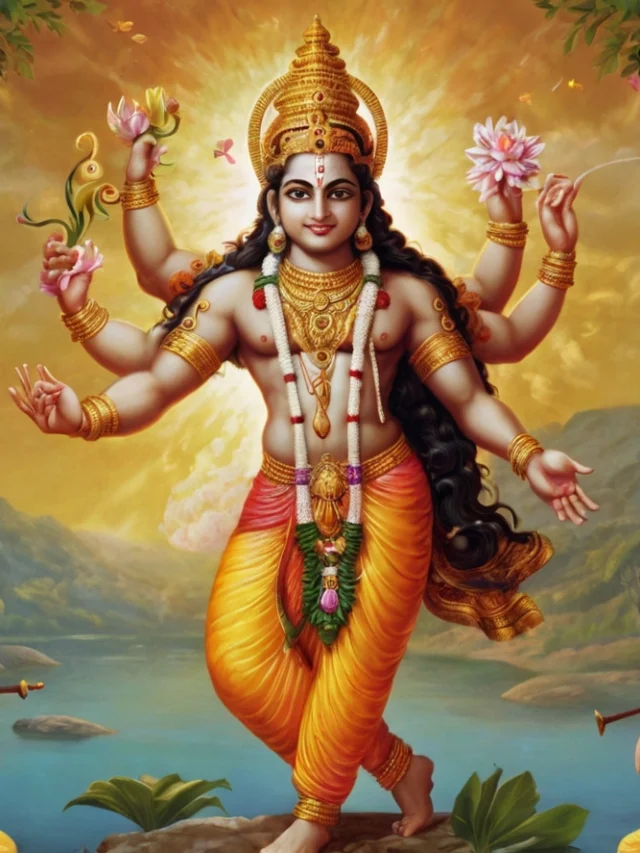Discover the story of Lakshmana’s incredible 14-year sleepless vigil in the Ramayana, where he forsakes sleep to protect Rama and Sita, with the silent sacrifice of his wife Urmila, who takes on his burden in a tale of devotion and duty.

Laxman’s Vigil: A Fourteen-Year Endurance
Laxman, the younger brother of Lord Rama, is renowned for his unwavering devotion and loyalty. One of the most remarkable tales of his dedication involves his fourteen-year vigil during the exile of Lord Rama and Sita.
During their exile, Lord Rama, Sita, and Laxman resided in the forest. Laxman, ever vigilant, vowed to protect his brother and sister-in-law from any harm. He took upon himself the arduous task of staying awake throughout the entire duration of their exile, ensuring their safety.
To keep himself awake, Laxman resorted to various methods. He would engage in physical activities, meditate, and recite sacred hymns. He would also engage in conversation with his brother and sister-in-law, their stories and companionship providing a source of strength and motivation.
Despite the challenges, Laxman remained steadfast in his resolve. He endured countless sleepless nights, facing the exhaustion and the allure of sleep. Yet, his unwavering devotion to Lord Rama and Sita kept him awake.
Finally, after fourteen long years, Lord Rama’s exile came to an end. Laxman’s vigil was complete. His unwavering dedication and perseverance became a testament to his love and loyalty. The tale of Laxman’s fourteen-year vigil continues to inspire and amaze, a testament to the power of human spirit and the depths of devotion.

The Legend of Lakshmana and Nidra Devi
When Rama was exiled to the forest for 14 years, Lakshmana chose to accompany him, leaving behind the comforts of the palace and his newly wedded wife, Urmila. Lakshmana was determined to serve Rama and Sita with full dedication and decided that he would stay awake throughout the entire period of the exile to ensure their safety.
According to legend, Lakshmana approached Nidra Devi, the goddess of sleep, and requested her to free him from the need to sleep for the duration of the exile. Nidra Devi, impressed by his dedication, granted his wish but stipulated that someone else would have to bear the burden of his lost sleep. Lakshmana immediately thought of his wife, Urmila.
Lakshmana asked Urmila if she would be willing to take on his share of sleep for the 14 years, and she readily agreed out of love and devotion for her husband. As a result, Urmila fell into a deep sleep that lasted for the entire 14 years of the exile. This allowed Lakshmana to stay by Rama’s side, vigilant and tireless, without ever needing to rest.
Significance of Lakshmana’s Sacrifice
Lakshmana’s decision to forsake sleep is a testament to his selflessness and devotion. By remaining awake, he could constantly guard Rama and Sita, especially during the dangerous times they faced in the forest. His vigilance was crucial in protecting them from numerous threats, including demons like Surpanakha and during pivotal moments like the abduction of Sita by Ravana.
Lakshmana’s sacrifice is often highlighted in Hindu mythology as an example of the lengths to which one can go out of love and duty. It also emphasizes the deep bond between the brothers, where Lakshmana’s life was entirely dedicated to Rama’s service.
Urmila’s Role
Urmila, the wife of Lakshmana and daughter of King Janaka, played a crucial yet often understated role in the Ramayana, particularly in the story of Lakshmana’s sleepless vigil during Rama’s 14-year exile. Her contribution, though largely behind the scenes, was one of profound sacrifice and devotion.
Urmila’s Sacrifice: Taking on Lakshmana’s Sleep
When Rama was exiled to the forest, Lakshmana chose to accompany him, leaving behind his newly wedded wife, Urmila. Lakshmana’s devotion to Rama was so intense that he decided to remain awake for the entire 14 years of the exile, so he could protect and serve Rama and Sita without distraction. To achieve this, Lakshmana approached Nidra Devi, the goddess of sleep, and requested her to free him from the need to sleep.
Nidra Devi agreed, but on the condition that someone else would have to bear the burden of Lakshmana’s lost sleep. Without hesitation, Lakshmana turned to his wife, Urmila. He asked her if she would take on his share of sleep for the entire duration of the exile, and Urmila, understanding the importance of Lakshmana’s duty to Rama, willingly agreed.
Urmila’s Long Sleep
Urmila’s acceptance of this responsibility meant that she fell into a deep, uninterrupted sleep for 14 years. This sacrifice allowed Lakshmana to remain by Rama and Sita’s side, vigilant and tireless, throughout their time in the forest. Urmila’s long sleep is symbolic of her deep love and understanding of Lakshmana’s duty, as well as her own role in supporting the greater mission of righteousness that her husband and his family were undertaking.
The Silent Sacrifice
Urmila’s sacrifice is often seen as a silent yet profound act of devotion. While Lakshmana’s sleeplessness is well-known, Urmila’s role was equally important, as it enabled Lakshmana to fulfill his duty without any physical limitations. Urmila, often described as an embodiment of patience and endurance, played her part quietly, away from the action but with a deep impact on the course of events.
Legacy of Urmila’s Devotion
Urmila’s story is a powerful reminder of the often-overlooked sacrifices made by those who stay behind the scenes. Her willingness to endure 14 years of deep sleep so that her husband could serve Rama exemplifies her strength and devotion. Urmila’s role in the Ramayana is celebrated as an example of unconditional support and love, showcasing that the sacrifices made by women, though sometimes less visible, are integral to the success of great endeavors.
Urmila’s story is a testament to the idea that strength and heroism can manifest in many forms, including the quiet endurance of great challenges for the sake of loved ones.

The Return of Sleep: The Awakening of Urmila After 14 Years
The story of Urmila in the Ramayana is one of quiet but profound sacrifice. For 14 years, she slept deeply, taking on the burden of Lakshmana’s lost sleep so he could remain vigilant by Rama’s side during their exile. This extraordinary act of devotion is beautifully concluded with “The Return of Sleep,” marking the end of her long slumber and the fulfillment of her sacrifice.
The End of the Exile
After 14 years of exile, Rama, Sita, and Lakshmana returned to Ayodhya, victorious and ready to resume their lives. The return of the exiled trio marked the end of many sacrifices made during those years, including the one made by Urmila. As Lakshmana’s duty to protect his brother came to a close, so too did the period of sleeplessness he had endured with Urmila’s help.
Urmila’s Awakening
With the end of the exile, Nidra Devi, the goddess of sleep, returned to Ayodhya to release Urmila from her deep slumber. After 14 long years, Urmila awoke, having faithfully borne the burden of Lakshmana’s sleep. Her awakening signified not just the physical end of her sleep, but also the completion of her role in the divine mission that Rama and Lakshmana undertook.
Urmila’s awakening was a moment of great reunion and joy, as she was finally able to see her husband again and share in the victory of Rama’s return. The long years of separation and sacrifice were over, and Urmila could now resume her life with Lakshmana, having fulfilled her duty in silence and patience.
Symbolism of the Return of Sleep
The return of sleep to Urmila is rich in symbolism. It represents the restoration of balance and normalcy after a period of intense sacrifice and duty. Just as Lakshmana’s sleeplessness was necessary for the protection of Rama and Sita, Urmila’s long sleep was a necessary support to that effort. With their mission accomplished, both Lakshmana and Urmila could return to a life of peace and rest.
Urmila’s story, particularly the return of her sleep, also highlights the idea that every sacrifice, no matter how silent or unseen, is eventually recognized and honored. Her endurance and strength, though not in the spotlight, were crucial to the success of the larger mission. The return of sleep symbolizes the end of her trial and the beginning of a well-deserved peace.
Urmila’s Legacy
Urmila’s sacrifice and the eventual return of her sleep serve as an enduring lesson in the values of devotion, patience, and support. Her willingness to support her husband’s duty by taking on such a burden is a testament to her character. When sleep finally returned to her, it was not just the end of a physical act, but the culmination of her role in the epic narrative of the Ramayana.
The return of sleep to Urmila, therefore, is a moment of triumph for her as well—a moment where her quiet, steadfast devotion is finally rewarded, and she is reunited with her family, having played her part in the great epic with grace and humility.



